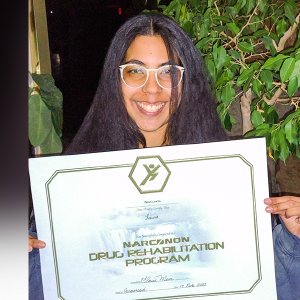Ways to Help You Get Your Family’s Trust Back While in Recovery

You went to rehab and now you are clean and ready to start your life again, but you now realize that you lost the trust of your family. This doesn’t return with a simple apology.
Getting your family’s trust back takes time and consistency. You have to do the right things over and over again to show them you have changed and are not going back to drugs or alcohol. There is no time limit and there is no instruction manual that will help you, but there are certain things that you can do to start the healing process and help rebuild, or build for the first time, strong and healthy relationships with your family.
As an addict, I lost my family’s trust a long time ago. Going through a rehab program didn’t mean that all was forgiven. I had a lot of work to do and I’m still doing things every day to make up for all the lying, cheating, and manipulation, as well as for all the financial problems and the time I caused my family.
During my time at rehab, I gradually accepted responsibility for the harmful things I had done to those who had once trusted me. In the beginning, I didn’t understand that I was actually responsible for those things, I blamed my actions on the drugs and alcohol. Once I realized that I was responsible it allowed me a way to repair the damage.
I graduated from the program and found that while my family was happy for me they didn’t exactly trust me. While I was addicted, I had betrayed their trust and now that I completed rehab, they still didn’t trust me. They doubted me. I knew that I had to use what I learned in rehab to take responsibility and apply the tools I had learned to regain their trust. And doing that took a long time.
Here are some steps you can take to show your family that you have recognized the errors of your past, have taken responsibility for them, and are now ready to show them that you are different now.

- Don’t lie. You are starting a new life after rehab and you have to put your past behind you. Never lie about anything that happened in the past, and always admit to your mistakes. Be honest about your past, and be honest about how you feel now. If you are asked a question, always be honest with your answer. Be honest about your plans for the future. If you don’t have the answer, just say you don’t have an answer. As the new you, take responsibility for mistakes and have nothing to hide.
- Do what you say you are going to do. When you tell your family you will apply for a job, do apply for that job. Don’t say you will do something and don’t do it. If you say you will clean your mama’s garden, go clean your mama’s garden. When you give your word, stick to it no matter what. If you don’t stick to your word, why would they believe that you will stay sober? Never say something that you know you will not do.
- Don’t stay out late. Staying out late will not look good. Your family is probably used to you coming home wasted late at night and if you stay out late now, it will bring back bad memories. Even if you are sure that you will not get wasted, come home at a decent hour and stay home at night.
- Spend quality time with your family. Sit down with your family and enjoy your time together. Be curious and interested in what’s going on with them. Listen to what they say and be part of their lives again. Enjoy a movie and popcorn with them and make them feel that you are there. Be the brother, sister, father, mother, son, daughter, or cousin to the people that stayed by you when you needed them. Family is irreplaceable so cherish every second.
- Don’t joke about being wasted. Your old life is not a joke to your loved ones, so don’t ever joke about you being high or drunk. It’s not funny to them and it is not a joke. Take your recovery seriously because it’s serious business.
- Share your accomplishments with your family. If you go to a job interview, talk to them about it. Tell them what the interviewer said and how you answered. If you had a win that day, tell them about it. Make them a part of your life and do that by communicating. Tell them about your plans for the future and discuss your plans with them.
- Help your family. If you see your family doing something that you can help with, help them. Help your dad with the car, help your mom in the kitchen, help your sister with her homework. Don’t just sit there on the couch while everyone is doing something and don’t wait until they ask you for help. Take initiative and help them with whatever they doing. This is your chance to show them the new you, so do your best.
- Keep working on your recovery. Do whatever works for you. If church is what’s helping you stay sober, keep going to church. If AA meetings are your thing, keep going to those meetings. If counseling is doing it for you, keep going to counseling. Recovery is due every day, so keep working on your recovery.
- Keep your routine. Wake up early and go to sleep early, if that’s what you do. Keep the same routine you had in rehab. Show them that you are a stable person now, and that you are different.
It takes a lot of time and a lot of doing the right thing over and over again to show your family that you mean business and are serious about your recovery. You didn’t lose their trust in one day, so you won’t get it back in one day. Always keep communication open with them. Humans don’t read minds, so talk to them about anything. They will appreciate your honesty and in time, you will start to see everything will go back to normal, or even better than normal. Let it take as long as it takes. Never lose your temper if you get judged about your past. Always take responsibility for what you did.
Recovery is not easy, but it’s a lot better than addiction. So always remember who stuck by you and helped you. Family is the most important thing in the world. My personal advice is that after rehab, your job and your family are your life now and nothing else matters.


